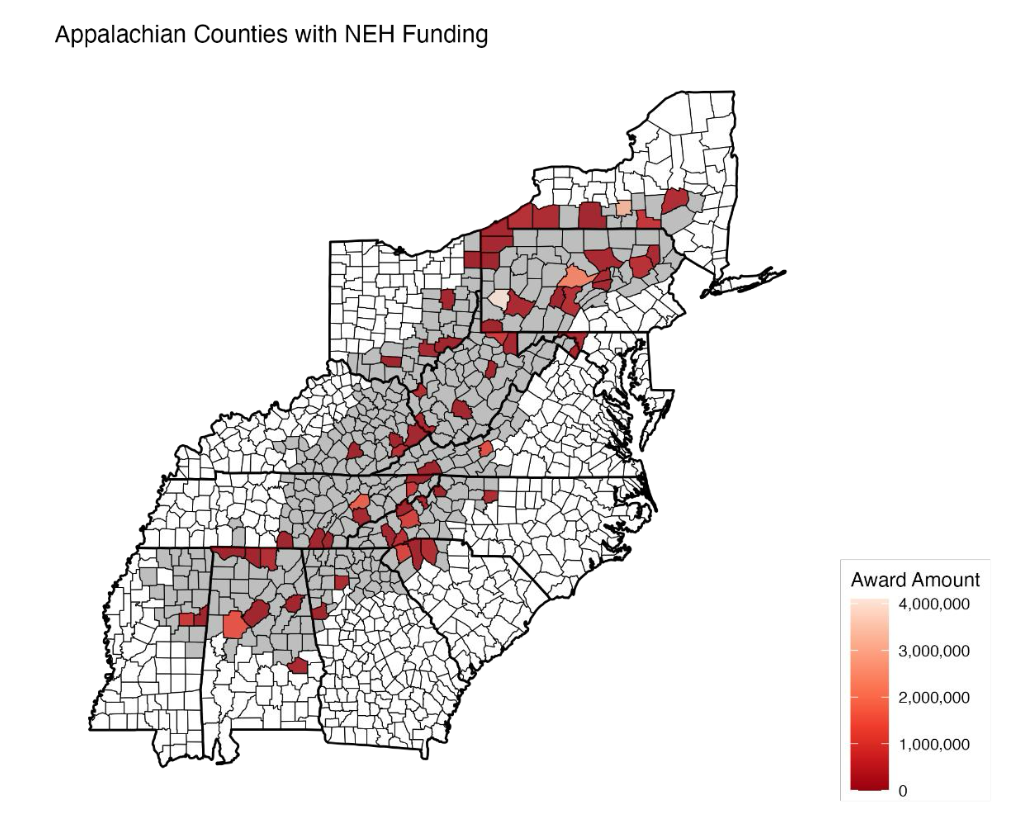Health of the Humanities in Appalachia
As an intern with the National Endowment for the Humanities (NEH) with the Office of Data and Evaluation (ODE), I examined NEH funding from 2018-2023 for the Applachian region. The project resulted in an interactive dashboard, which can be found here, with accompanying reports and codebooks.

In summary, NEH has allocated nearly $29 million to the Appalachian region over the last five years. The most financially supported discipline was history, with 138 unique history projects (approx. $12.8 million). NEH’s Education and Research divisions provided the largest funding totals ($6.4 million and $5.9 million respectively). Of this amount, approximately $9.3 million has gone towards research universities with high research output (R1 universities). In total, $18.4 million has been awarded to higher education institutions, with approximately $500,000 awarded to five HBCUs in the region.
These primary amounts of funding show that the support for humanities projects in Appalachia take many forms. For example, NEH awarded $30,000 to the West Virginia Mine Wars Museum in 2020, allowing the museum employees to retain employment during the pandemic, as well as digitize their collection for online educational efforts. Nearly $90,000 was granted to the Historical Society of Western Pennsylvania in 2019 to create an online database recording the history of Kennywood Park. An award of $400,000 went to Pellissippi State Community College to fund The Appalachian Heritage Project, which assisted with building a library filled with compelling stories of the region. This is only a small window into the vast range of unique and important projects in Appalachia funded by NEH.
